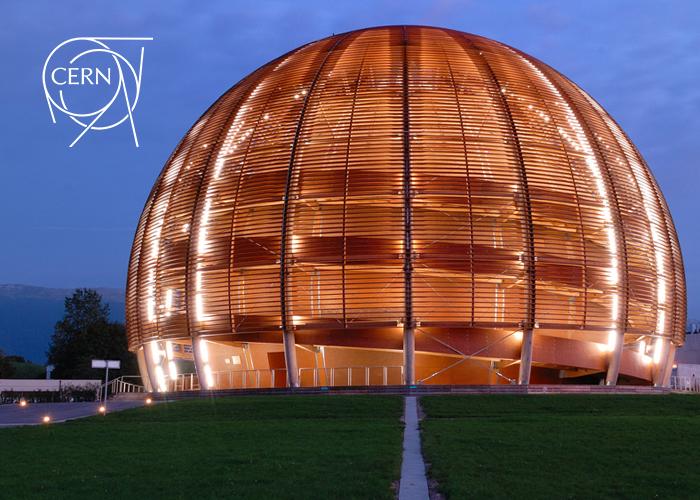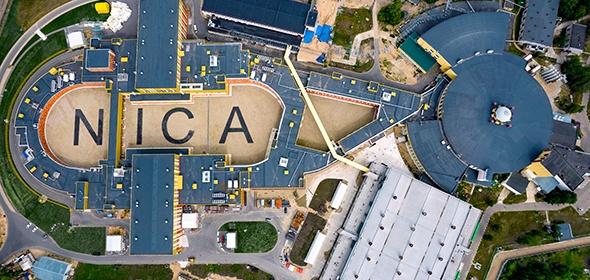CERN's suspension of collaboration leaves Russian science in limbo Large Hadron Collider is inaccessible to the nation
The European Organization for Nuclear Research (CERN), which manages the Large Hadron Collider, announced at the end of last year that it would end cooperation with Russian scientists. The embargo came into force in November 2023. We will try to explain below what this fact means for Russian physics and what they will lose in Europe.
The fact of the unilateral termination of cooperation with CERN cannot be called unexpected news. Russia's observer status at CERN was paused by the CERN Council on March 8, 2022. The Council resolution document stated that "CERN will not engage in new collaborations with the Russian Federation and its scientific institutions until further notice."
What do the words “in a new collaboration” mean? There is a standard agreement between Russia and CERN, concluded for five years. After this period, such documents are normally renewed automatically, unless one of the parties notifies the other of its intention not to renew the agreement at least six months in advance.
In December 2023, CERN notified that it did not intend to renew the agreements with Russia and Belarus, which expired on November 30 and June 27, 2024, respectively. The statement by CERN official Arnaud Marsollier, dated March 19, simply stated a long-standing situation.
As a politically sophisticated reader might guess, the decision to end cooperation with Russia and Belarus is directly related to Russia’s armed invasion of Ukraine, which began in February 2022.
Creation of CERN
CERN as an organization was founded on September 29, 1953 in Paris by 12 founding countries. Today there are already 23 European states in the organization. In addition to membership in the organization, CERN has other mechanisms for international cooperation. There are three such mechanisms in the form of status - the status of an associate member (Ukraine received it in 2016), an associate member at the stage of preparation for membership, and an observer. In particular, the United States and Japan have observer status and international organizations such as the European Union and UNESCO. In addition, many states have cooperation agreements with CERN, without having any of the above statuses.



In 1991, Russia also received observer status. This was a logical result of developing relations that lasted several decades. The first protocol on cooperation between CERN and scientists from the USSR was signed in 1967, and individual contacts began years earlier.
Crisis of confidence
CERN's main asset is, of course, the Large Hadron Collider (LHC). This is the largest particle accelerator in the history of science. The 27 km long ring-shaped installation accelerates particles to a record energy of 13.6 teraelectronvolts. Many of the physical processes observed at the LHC cannot be reproduced at any other installation existing in other countries. There are accelerators of various types in countries such as the USA, Great Britain, Italy, Germany and of course in Russia, but they have significantly lower power and do not allow for research on the scale of the LHC.
Since the start of the accelerator's operation, Russian specialists have left a noticeable mark on the construction and maintenance of the LHC, not to mention the experiments carried out on it. The first protocol on Russia's participation in the LHC project dates back to 1996 when the giant accelerator existed only as a project at the conceptual stage of its development. Russia is the owner of the key elements of an extensive computer network that processes gigantic volumes of data from the accelerator. Physicists from Russia are co-authors of many scientific discoveries made together with physicists from other countries. Now all this cooperation will have to stop.
But CERN consists of more than just the LHC. Scientists from Russia participated in many other studies. Let's list just a few of them.
The AEGIS and ASACUSA experiments focused on the properties of antimatter. The CAST detector is searching for hypothetical particles - axions - that could come from the Sun. Scientists suspect that axions are the mysterious dark matter. The CLOUD project is investigating whether various charged particles coming from the depths of the Galaxy influence the formation of clouds in the Earth's atmosphere. The COMPASS project team is studying the internal structure of protons and neutrons at the Superproton Synchrotron, the second-largest accelerator at CERN at 7 km in length. The OPERA project, which is important for all humanity, studies the transformations of neutrinos - light, penetrating particles. These metamorphoses are the only reliably known phenomenon to date that goes beyond the Standard Model of particle physics.
Now all these studies will continue without Russian scientists.
Who loses in this game?
What does CERN lose as a result of a purely political decision of its Council?
First of all, replacing such a number of specialists is impossible without problems. Even experienced doctors of science who have never worked at accelerators will have to gain relevant experience for months. This will of course affect both the quality and timing of scientific research.
And yet, in the 23 member countries of CERN, not to mention associate members and observers, there are a sufficient number of specialists - physicists who have enough desire and competence to fill vacant positions. This blow will be much more painful for Russian science.
Of course, Russia also has first-class scientific facilities. For example, the NICA accelerator is being prepared for commissioning in Dubna, but it cannot compare with the Large Hadron Collider in terms of particle energy. Various properties of neutrons can be studied using the advanced PIK reactor in Gatchina. Russian and other neutrino specialists will continue their research at world-class neutrino telescopes: Baikal-GVD on Lake Baikal and at the Baksan Neutrino Observatory in Kabardino-Balkaria, and the list goes on.

However, everything is structured in world science in such a way that different scientific projects and instruments do not replace, but complement each other. The Dubninskaya “Nika” has different tasks and capabilities than the LHC, and on Lake Baikal they catch neutrinos in a different way and for different purposes than in the OPERA detector. By breaking off cooperation with Russia, CERN functionaries cut off Russian science from entire research areas.
In all these areas, Russian physicists will now have to be in the position of catching up. At best, they will get data published with a time delay, from which the cream of the most interesting results has already been skimmed. In the worst case, Russian specialists will simply have to read other people’s articles.
Russian scientists can only hope that the current crisis in Russia's relations with the West will not last forever. When political passions subside, scientists from Russia will again be able to continue their direct and natural work - joint knowledge of nature in the interests of all humanity.








